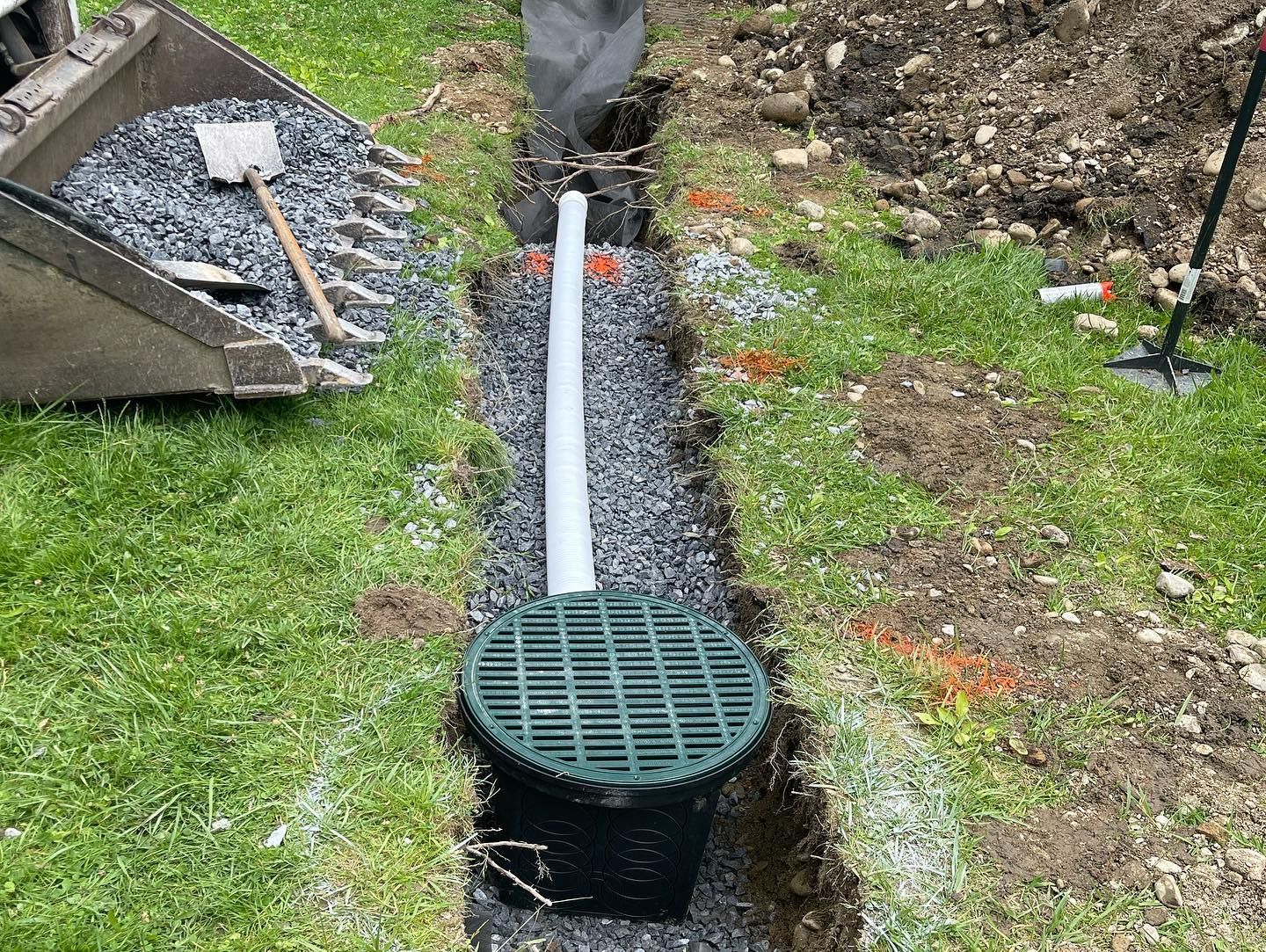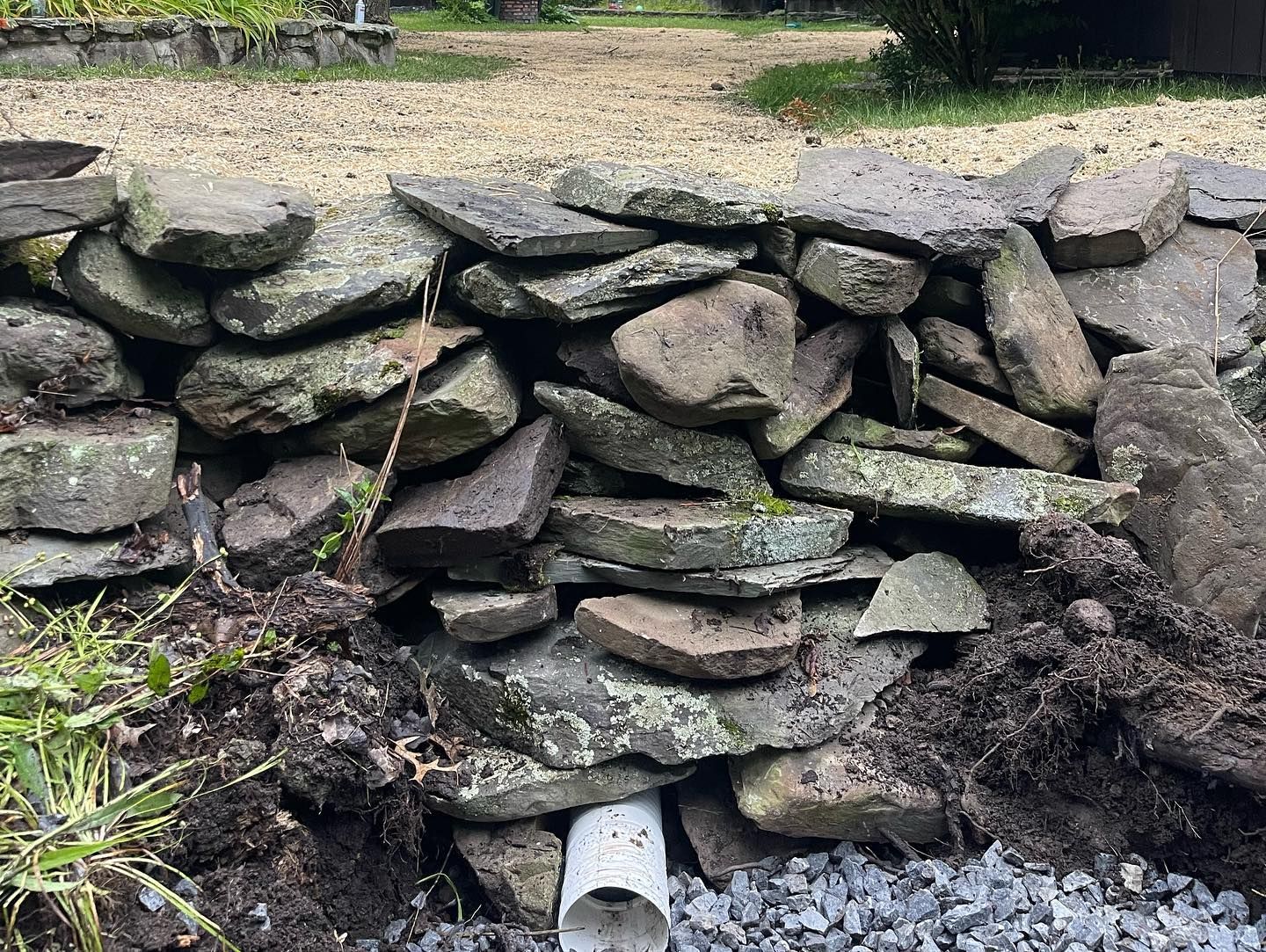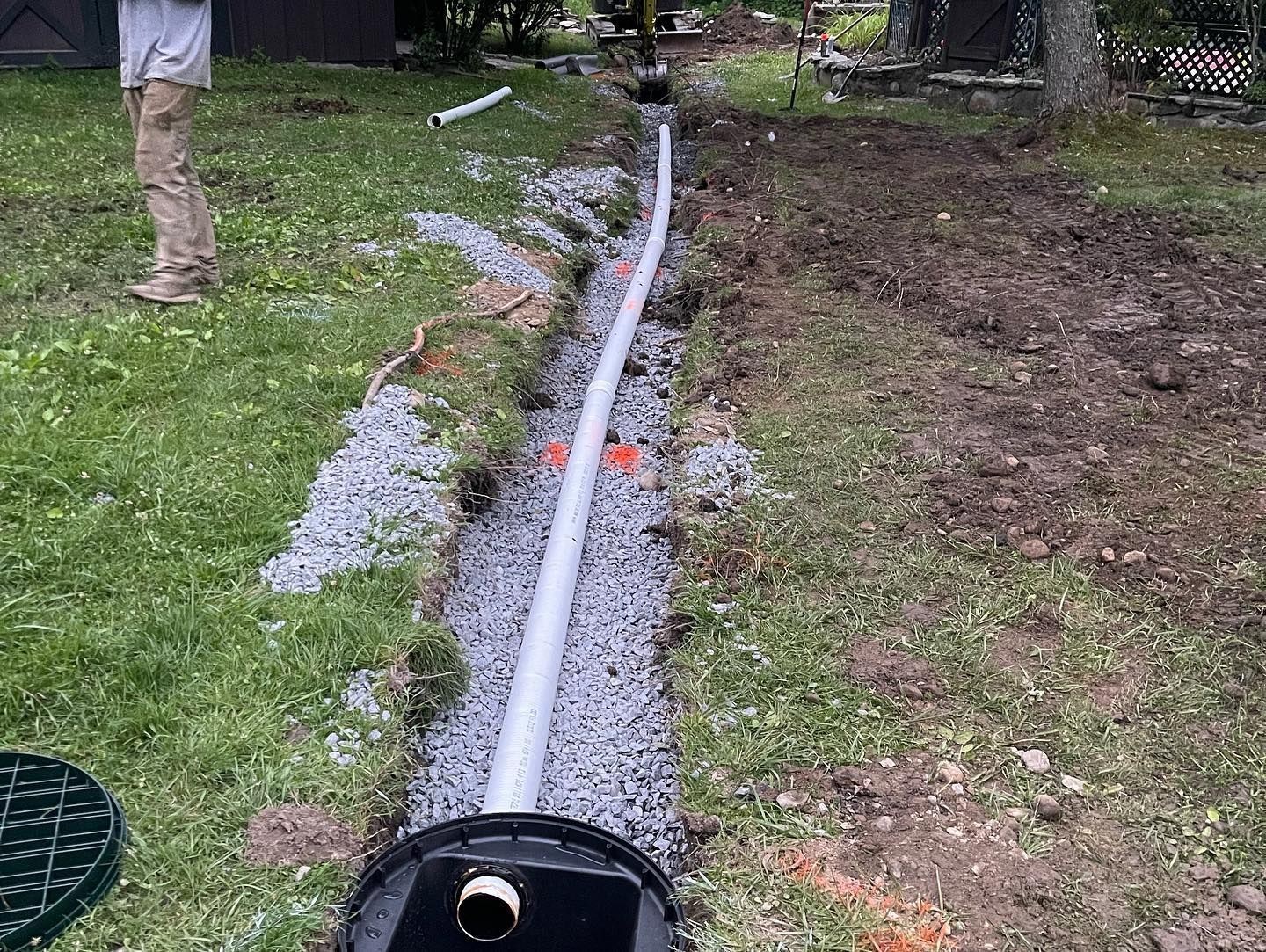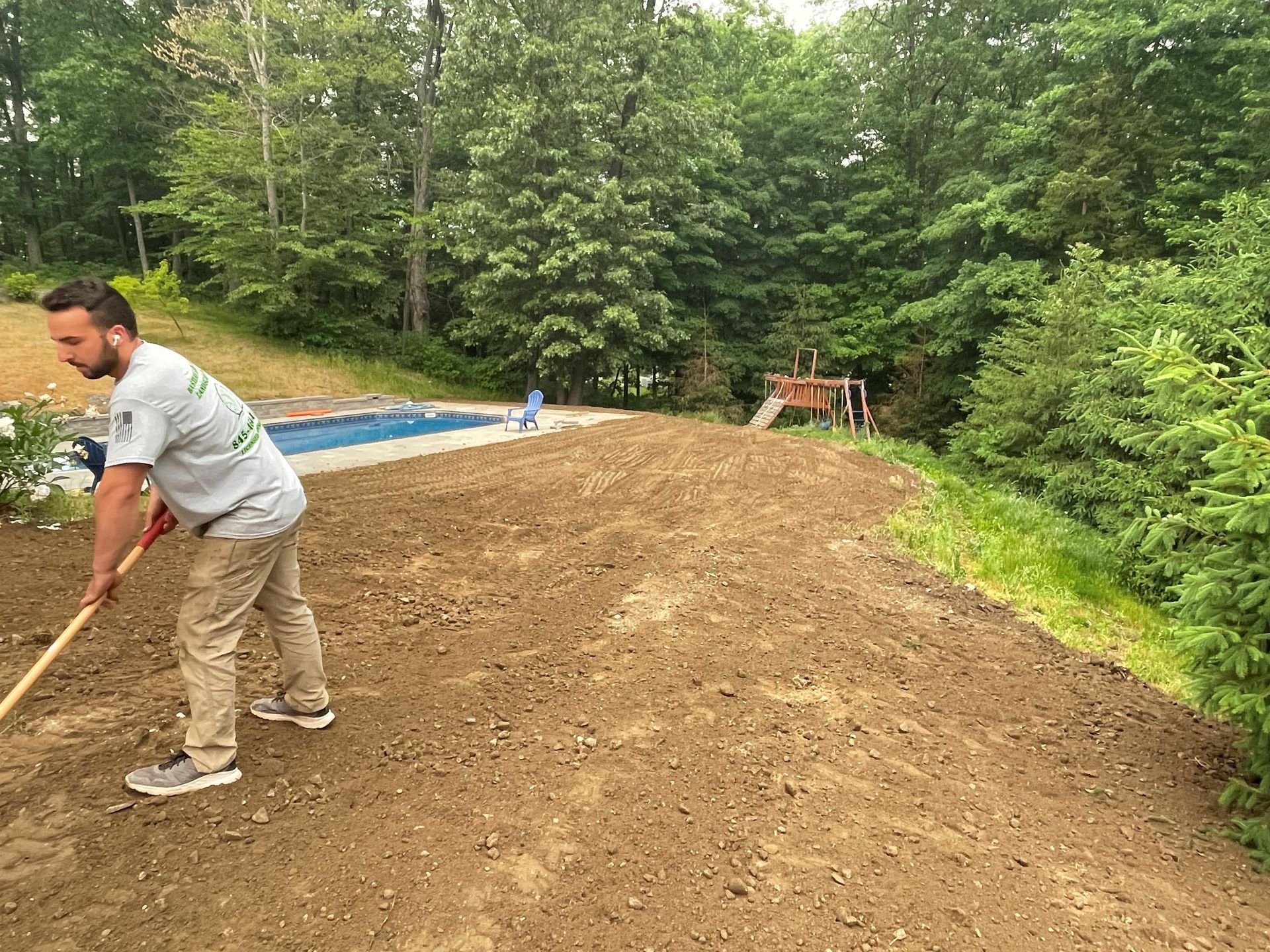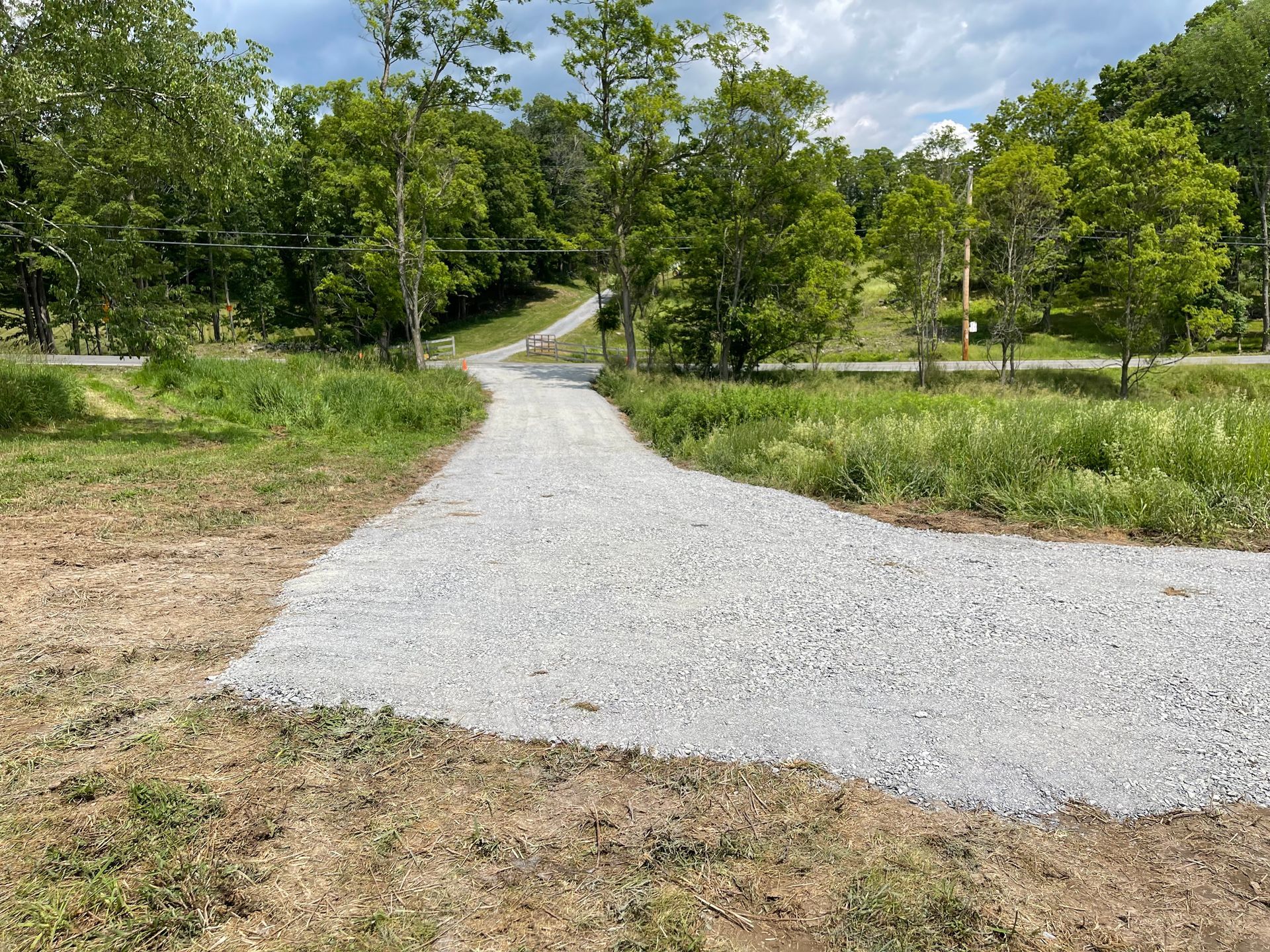EXCAVATION, GRADING & DRAINAGE

Light excavation refers to the process of removing a small amount of soil or earth to prepare a site for construction or landscaping purposes. It typically involves the use of machinery such as excavators, backhoes, or bulldozers to dig, grade, or level the ground. Light excavation is commonly employed in residential or small-scale commercial projects, such as digging trenches for utilities, creating foundations for structures, or shaping terrain for landscaping.
Drainage, on the other hand, refers to the system or process of removing excess water from an area, typically to prevent flooding, water accumulation, or water damage. Proper drainage is crucial for maintaining the integrity and functionality of structures, as well as preventing water-related problems in landscapes or agricultural fields.
When used together, light excavation and drainage often involve preparing the ground by excavating or reshaping it to accommodate drainage systems, such as installing pipes, culverts, or ditches. These drainage systems help redirect water away from the site, ensuring proper water flow and preventing water-related issues. The excavation work may also involve creating slopes or contours to facilitate effective drainage and prevent water from pooling or stagnating in specific areas.
There are several types of residential drainage systems that can be implemented to manage water around a property.
Here are some common types of drains:
Surface Drains:
Surface drains are installed at ground level and are designed to collect and channel water from the surface into a drainage system. They typically consist of grates or catch basins connected to underground pipes that carry the water away from the property.
French Drains:
French drains are underground drainage systems that utilize a perforated pipe wrapped in a geotextile fabric. They are installed in a trench filled with gravel or crushed stone. The French drain collects and redirects water away from an area by allowing it to seep into the perforated pipe and then directing it to a suitable drainage outlet.
Downspout Extensions:
Downspout extensions are used to divert water away from the foundation of a building. They are typically attached to the downspouts of rain gutters and direct the water a safe distance away from the house, preventing water from pooling near the foundation.
Swales:
Swales are shallow, broad channels or depressions in the landscape that are designed to collect and channel water. They are commonly used to redirect water away from buildings or low-lying areas. Swales are typically lined with grass or other vegetation that helps slow down the flow of water and promote absorption into the soil.
Retaining Walls:
Retaining walls not only provide structural support but can also act as drainage systems. They are designed to hold back soil and create level areas on slopes. Retaining walls often include drainage pipes or weep holes that allow water to drain through and prevent hydrostatic pressure build-up behind the wall.
Dry Wells:
Dry wells are large underground chambers filled with gravel or crushed stone that collect and store water from downspouts or other drainage systems. The stored water gradually seeps into the surrounding soil or is absorbed over time, helping to alleviate excess water on the property.
Driveway Solutions
Your driveway is a critical part of your property as you need to come and go from your home conveniently and safely. If you have recently purchased a property or want to clear a path from your home to the road, we can help with our driveway solutions. Item 4 driveway installation can help make getting in and out of your property more efficient and save your vehicle from pothole damage. We can tackle any drainage issues that arise and offer blacktop patching and millings for a clean professional apron at the end of your property as well.
These are just a few examples of residential drainage systems. The choice of drainage system depends on factors such as the property's topography, soil conditions, and the severity of drainage issues. It's often beneficial to consult with a professional landscaper or drainage expert to determine the most suitable drainage solution for a specific residential property.

